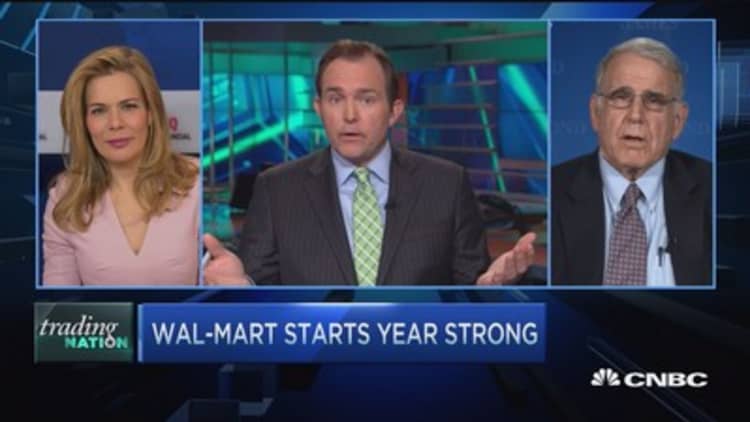


Stocks have been roiled in recent weeks, with markets around the world seeing an extended sell-off to start the year. In the U.S., major indexes have already given up all fourth-quarter gains in the first trading days of the year.
Because of the increased volatility, portfolio manager Chad Morganlander said his firm, Washington Crossing Advisors of Stifel Nicolaus, has been increasing cash exposure over the last three months.
"It is an asset class and you should utilize it in an environment like this, where global growth is decelerating at a rapid pace as well as commodities markets across the board are also hitting lower lows," Morganlander said Monday on CNBC's "Trading Nation."
In one of his 2016 predictions, Blackstone investor Byron Wien also noted that investors will resort to cash amid global market turmoil.
Allocation to U.S. equities has fallen to an eight-year low, with investors underweight the asset class for 10-straight months, according to the most recent Bank of America Merrill Lynch Global Fund Manager Survey. The survey also found that global average cash balance increased to 5.2 percent from 4.9 percent in December.
Read More Markets may see 1998-style correction: Wells Fargo
While survey strategists noted that increasing cash positions may be a contrarian buy indicator, Morganlander said he doesn't think it's time to jump back into stocks just yet, given current valuations and declining profit margins for S&P 500 companies.
"There's going to be that inflection point when you start leaning into risk," he said. But "for the most part, we've been asking investors in our own portfolios to move up the quality spectrum and actually have some cash on the sidelines if you do start to see a fracture in the credit markets."
Erin Gibbs of S&P Investment Advisory said the move to cash is indicative of a decreasing appetite for risk among investors, as well as fund managers' awareness of that shift.
"If you look at the big spike they had last year at the beginning of 2015, that was hardly an indicator of a strong bull market in the equities market," Gibbs said Monday on "Trading Nation." "I think what we're really seeing is that managers are keeping a little more cash on the books because they're worried about nervous investors trying to pull out, and therefore they need that cash available."
Want to be a part of the Trading Nation? If you'd like to call into our live Wednesday show, email your name, number, and a question to TradingNation@cnbc.com





